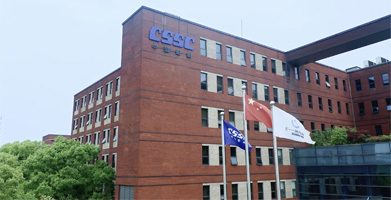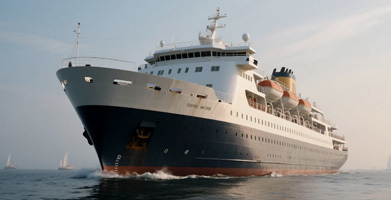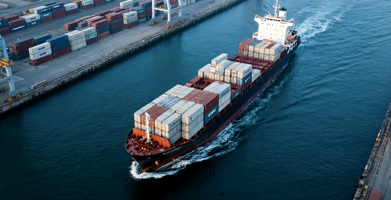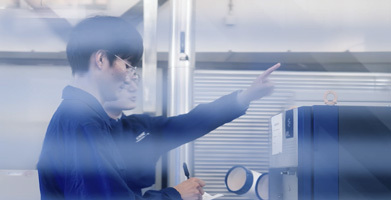◉ BLOG
To be a pioneer in ocean-going environmental protection with enthusiasm and innovation.
SMDERI-QET provides OCCS case studies for IMO, supporting global shipping industry’s decarbonization
Release time :
2025-04-15
April 13, 2025 – At the historic moment when the International Maritime Organization (IMO) approves Net-Zero Framework for greenhouse-gas reduction in global shipping industry, the onboard carbon capture system (OCCS) developed by SMDERI-QET in line with the IMO’s strategic goals and help accelerate the energy transformation of marine industry.
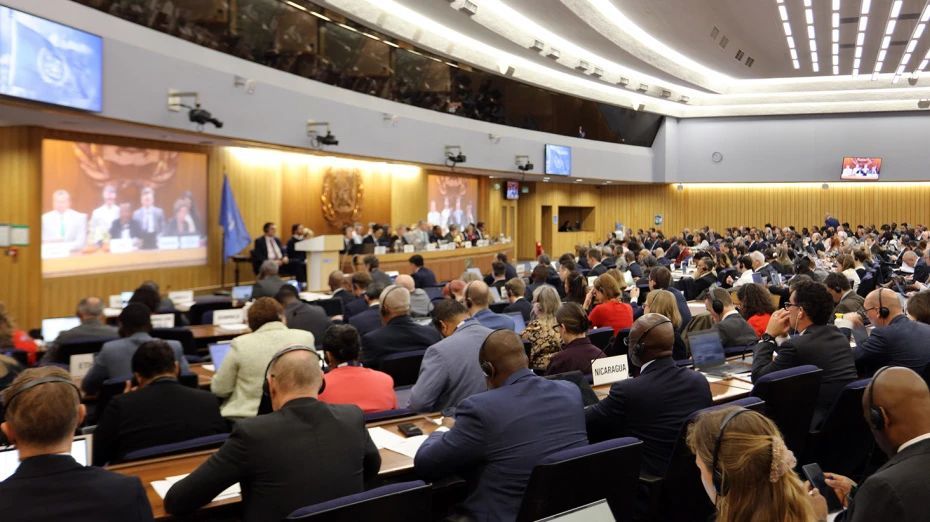
In January 2025, the proposal “A case of onboard carbon capture system and the offloading of captured CO2” (MEPC 83/INF.13), written by the relevant authorities of the Shanghai government in cooperation with SMDERI-QET, was formally included in the 83rd session of the Maritime Environment Protection Committee (MEPC 83) of the International Maritime Organization (IMO). This case not only verifies the maturity of China's onboard carbon capture technology but also provides a replicable solution for decarbonization of the global shipping industry through the practice of the whole process of “Capture - Store - Offlload - Utilize”.
Breakthrough: Delivered the world's first full-process OCCS system
SMDERI-QET's self-developed OCCS system applies organic amine recycling absorption technology to efficiently capture more than 80% of carbon dioxide in the ship's exhaust gas, and store it as liquid carbon dioxide(LCO2)with more than 99.9% purity through separation, compression, and liquefaction processes. In April 2024, the 14000TEU container ship equipped with this system completed the world's first LCO2 offloading in Shanghai Yangshan Port.
After this retrofit, the ship can continue to use traditional marine high sulfur fuel oil with reduced carbon emissions, bringing considerable economic benefits to the shipowner while maintaining the CII rating at C and extending the ship's service life by at least 12 years.
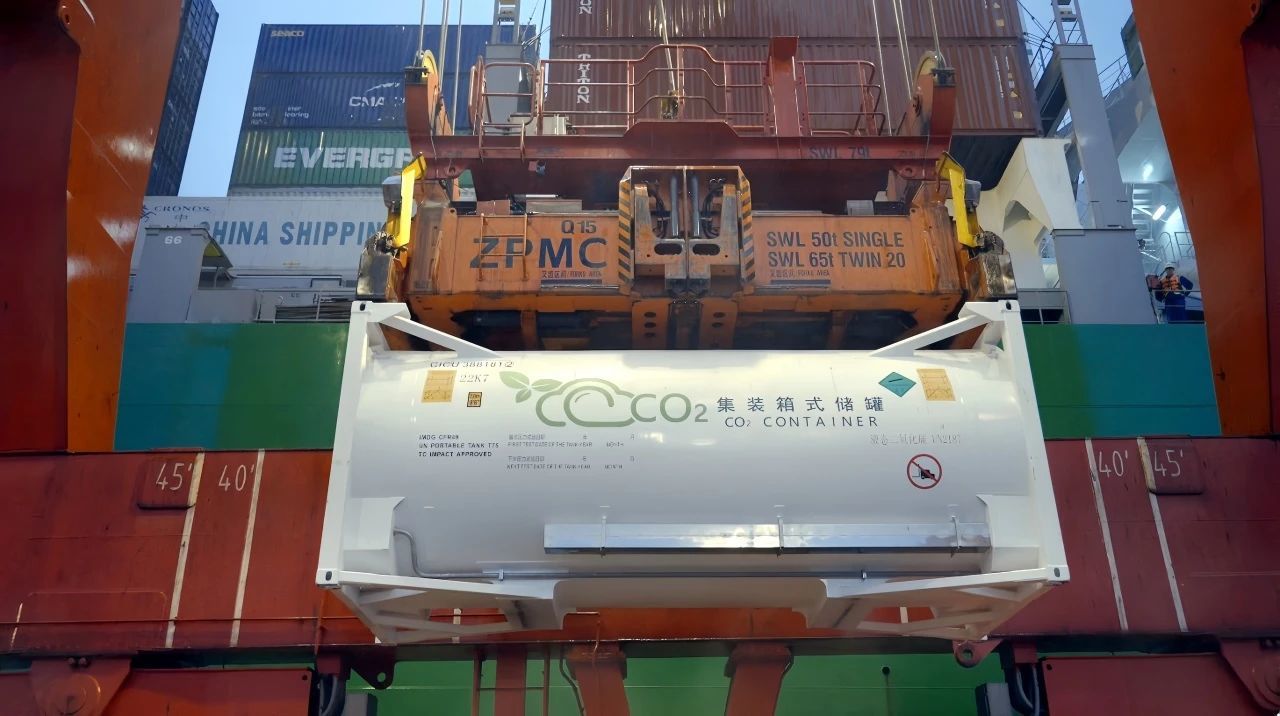
Carbon cycle:Solving CO₂ Offloading and Utilization Problem
The large-scale application of OCCS faces the bottleneck of lack of supporting facilities in ports. SMDERI-QET , in response to this problem, has creatively developed the world's first ship CO2 offloading system in terms of liquid tank design, pipeline transportation, safety monitoring, etc. In May 2024, the first tank of LCO2 was delivered to Changxing Island, Shanghai, for use as chemical raw materials, etc., achieving the “capture - utilization” closed loop.
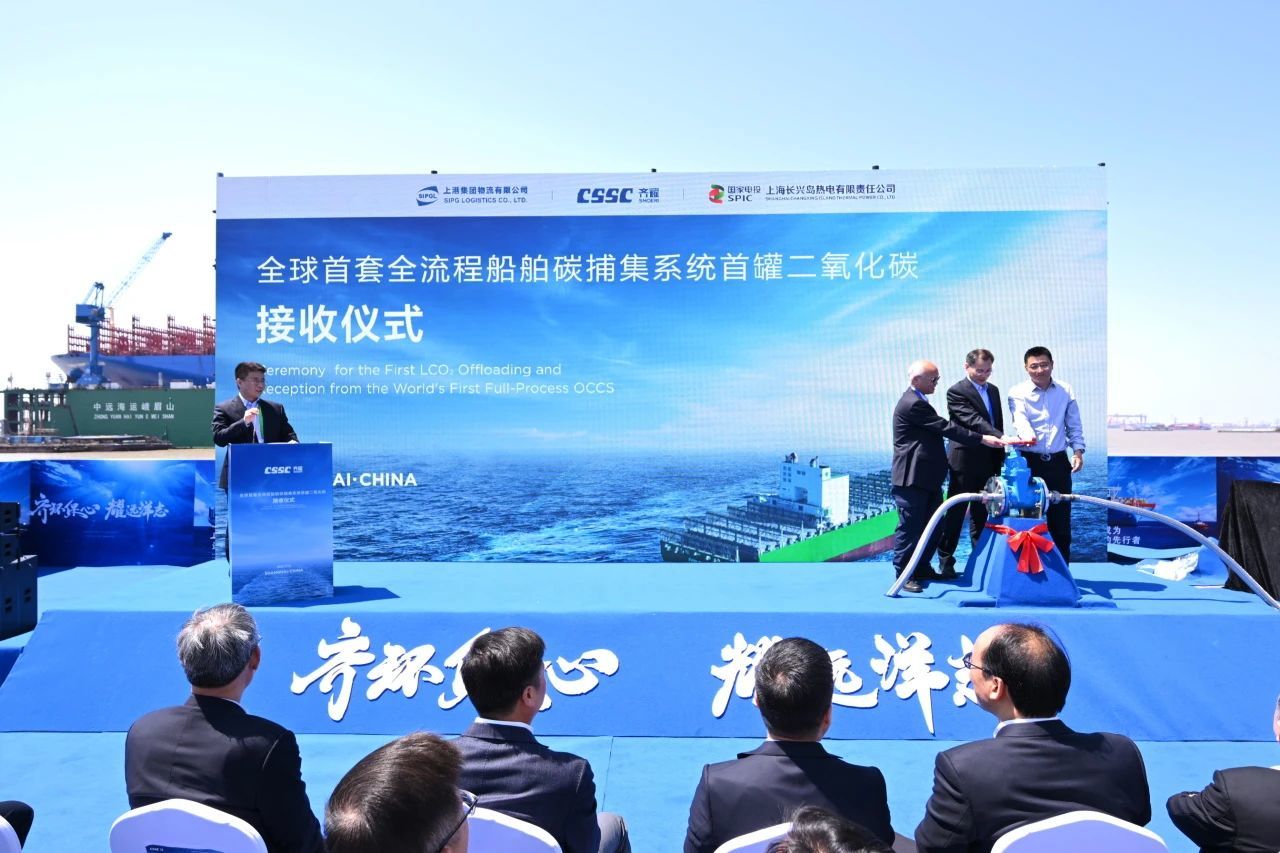
This action fills the gap of LCO2 recycling facilities in Chinese ports and provides a “Chinese example” for the construction of carbon recycling industry chain in the global shipping industry.
International Impact: OCCS Case Helps IMO Improve Regulatory Framework
The “Shipping Low Carbon Development Outlook 2023” published by China Classification Society (CCS) points out that OCCS technology is the most promising path to decarbonization after LNG and methanol fuels. SMDERI-QET's OCCS technology has been certified by several classification societies and will soon be applied in the world's first bulk carrier equipped with OCCS. The proposal was accepted by the IMO, marking the transition of SMDERI-QET and its partners from a “follower” to a “rule maker” in the shipping emission reduction field.
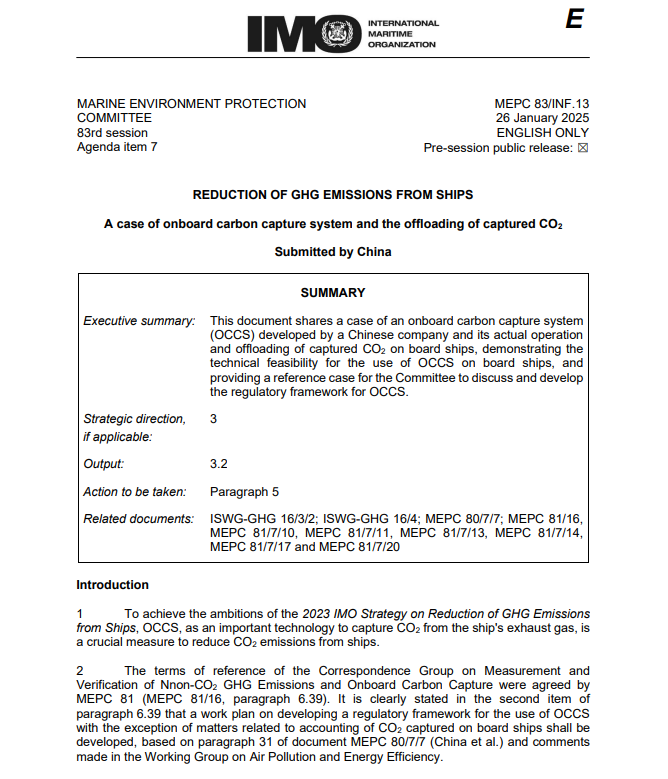
The proposal shares the technical principles, operational procedures and onboard test data of OCCS, which provides strong data support for IMO's discussion on the regulatory framework of OCCS technology. Currently, IMO is promoting the establishment of a fuel intensity standard and carbon pricing mechanism for the shipping industry, and this case provides solid evidence to support policymaking by verifying technical feasibility.
GREEN TOMORROW
Currently, IMO's “Net Zero Framework” requires the shipping industry to achieve net-zero greenhouse gas emissions by 2050, and promotes the transition through fuel standards and carbon pricing mechanisms.With the implementation of IMO's “Net Zero Framework”, this technology will become a key link between the existing fleet and the zero-carbon ships of the future, giving strong impetus to the global shipping industry's net-zero emissions goal.
keyword :
OCCS
Recommended News


